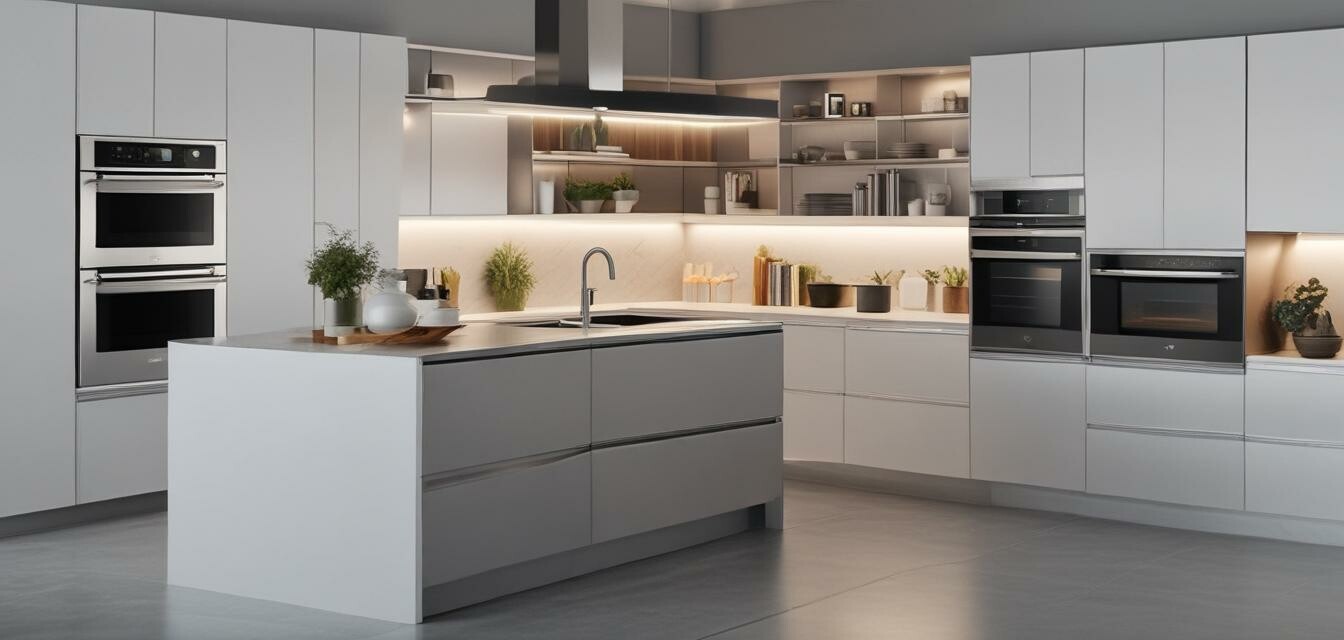
Smart appliances for first-time homeowners
Key Takeaways
- Smart appliances increase efficiency and convenience in the kitchen.
- Investing in technology can lead to energy savings and improved functionality.
- Essential categories include smart ovens, refrigerators, and touchless faucets.
- Understanding features like connectivity and app control can enhance your cooking experience.
- Choosing the right appliances can simplify life for first-time homeowners in their new kitchen.
As a first-time homeowner, making the right choices for your kitchen can set the tone for your entire home. Smart appliances are designed to enhance your cooking experience and bring a level of convenience that traditional appliances can’t match. In this guide, we’ll explore essential smart appliances that should be on your list and what features to look for to ensure you’re making a wise investment.
Why choose smart appliances?
Smart appliances offer a variety of benefits for homeowners, especially for those new to managing their kitchens. Here are a few reasons why smart appliances should be considered:
- Efficiency: Many smart devices are designed to be energy-efficient, helping to save on utility bills.
- Convenience: Remote controls and app integrations mean you can manage your appliances from anywhere in your home.
- Time-saving: Automation features allow you to focus on cooking rather than monitoring appliances.
Essential smart appliances for new homeowners
Here are some must-have smart appliances that every first-time homeowner should consider:
| Appliance Type | Key Features | Benefits |
|---|---|---|
| Smart Oven | Wi-Fi connectivity, voice control, remote monitoring | Precision cooking, ease of use, time-saving features |
| Smart Refrigerator | Touchscreen displays, inventory tracking, energy tracking | Better food management, reduced waste |
| Touchless Faucet | Motion sensors, temperature control | Hands-free operation, water conservation |
| Smart Dishwasher | Sensors for load size, energy-efficient modes | Thorough cleaning, efficient water use |
| Smart Coffee Maker | Programmable settings, app control | Fresh coffee on demand, customizable brewing |
Understanding features to look for
While shopping for smart appliances, consider the following features that can enhance your experience:
- Connectivity: Look for appliances that connect to your Wi-Fi for remote control and monitoring.
- Integration: Choose devices that can easily integrate with other smart home systems.
- Energy Efficiency Ratings: Opt for Energy Star rated appliances to save on energy costs.
Tips for first-time homeowners
- Prioritize essential appliances before adding extras.
- Read reviews to understand user experiences.
- Take measurements to ensure a proper fit in your kitchen space.
- Consider warranties and customer support options.
- Utilize resources like Smart Kitchen Buying Guides for informed choices.
Comparing smart appliances
Choosing the right smart appliances can be daunting. Consider making a comparison chart to help clarify your options:
| Appliance | Price Range | Common Brands | User Ratings |
|---|---|---|---|
| Smart Oven | $$$ | Brand A, Brand B | 4.5/5 |
| Smart Refrigerator | $$$$ | Brand C, Brand D | 4.7/5 |
| Touchless Faucet | $$ | Brand E, Brand F | 4.6/5 |
| Smart Dishwasher | $$$ | Brand G, Brand H | 4.8/5 |
Conclusion
Equipping your new kitchen with smart appliances is a fantastic way to enhance your cooking experience. From energy efficiency to increased convenience, these devices present many benefits that align with modern living. Be sure to do your research, consider the features that matter most to you, and visit our Kitchen Appliance Trends section for the latest developments in kitchen technology. Making informed decisions now will ensure your kitchen serves as a functional and inviting space for years to come.
Pros
- Enhanced convenience in meal preparation
- Energy-efficient options available
- Improves kitchen aesthetics and functionality
Cons
- Initial investment can be higher than traditional appliances
- Learning curve for using smart features